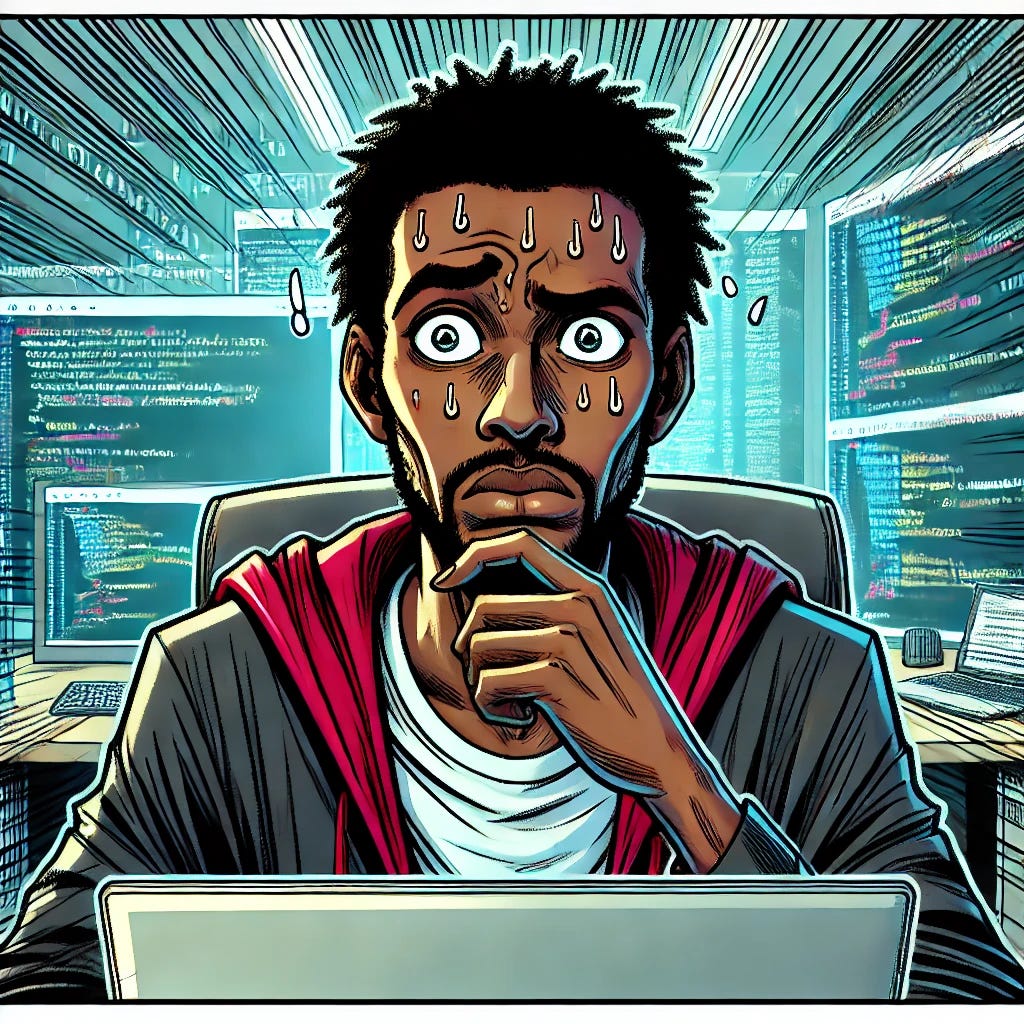I've been in many meeting rooms where I feel like I'm the only who doesn't understand a concept.
The senior data scientist is explaining a complex ML pipeline, and my brain is screaming "You don't belong here."
Classic impostor syndrome, right?
Wrong.
See, we've all been sold this lie that impostor syndrome is something to "overcome" That it's a weakness we need to push through or eliminate. I've fallen for that narrative myself
But after years in this field, I've noticed something fascinating:
The moments I felt most like a fraud were the exact moments before my biggest leaps forward.
I Wish I Understood This Sooner
Here's what nobody tells you about impostor syndrome in data science:
It isn't your weakness - it's your progress metre.
You feel like a fraud because you're pushing past your old limits.
It's your first time playing a new level of the game.
Think about it.
You never feel like an impostor doing things you've mastered. You don't feel like a fraud writing a for loop or doing basic EDA anymore, do you?
That feeling only kicks in when you're stretching beyond your comfort zone.
Reframing The Game
So let's flip the script. How differently would you feel if you adopted these mindsets:
- That moment when you're the only one in the meeting who doesn't understand the architecture? That's not failure - that's your next level of expertise announcing itself.
- When your code review comes back with 50 comments? That's not incompetence - that's feedback.
- When you're terrified to deploy your first model to production? That's not inadequacy - that's your future comfort zone.
The Power of Being Wrong
Here's something else elite data scientists understand:
Being wrong isn't a failure state - it's a learning state. The more often you're wrong early, the more likely you're right when it matters.
That impostor feeling? It's often just the echo of being wrong. And that's exactly where you need to be.
Last month, I got called out in a code review. My approach was inefficient. My logic had holes. My solution wasn't scalable.
When I first began, this would have crushed me. Now? I thanked my colleague for pointing it out, and guess who is never taking that approach again?
Every time I'm wrong:
I learn a better approach
I understand a new pattern
I strengthen my debugging skills
I build resilience
The elite data scientists I know aren't the ones who are always right. They're the ones who are wrong faster, learn faster, and grow faster.
The real danger isn't feeling like an impostor.
The real danger is getting too comfortable.
Because in data science, comfort is the enemy of growth. The moment you stop feeling like a fraud occasionally is the moment you stop pushing boundaries.
Your New Superpower
So here's what I want you to do:
Next time that impostor feeling creeps in, don't fight it. Welcome it.
Say to yourself: "Ah, I must be pushing into new territory."
Then use it as fuel.
Because here's the truth: Every great data scientist I know has felt like a fraud at some point. The difference is, they learned to see it as a signal that they're growing, not failing.
You have two options:
1. Play it safe, stay in your comfort zone, never feel like an impostor. Stagnant. Become more and more replaceable every year.
2. Push boundaries, grow rapidly, and use that impostor feeling as your guide
Choose wisely.
Leave a comment: When was the last time you felt like an impostor? What were you doing that triggered it?
Your data science buddy,
Nash Jay M
P.S. Feeling like an impostor right now? Good. Let's talk about it on Instagram.





Thank you mate. I have I new way ro see things now🔋🔥👍